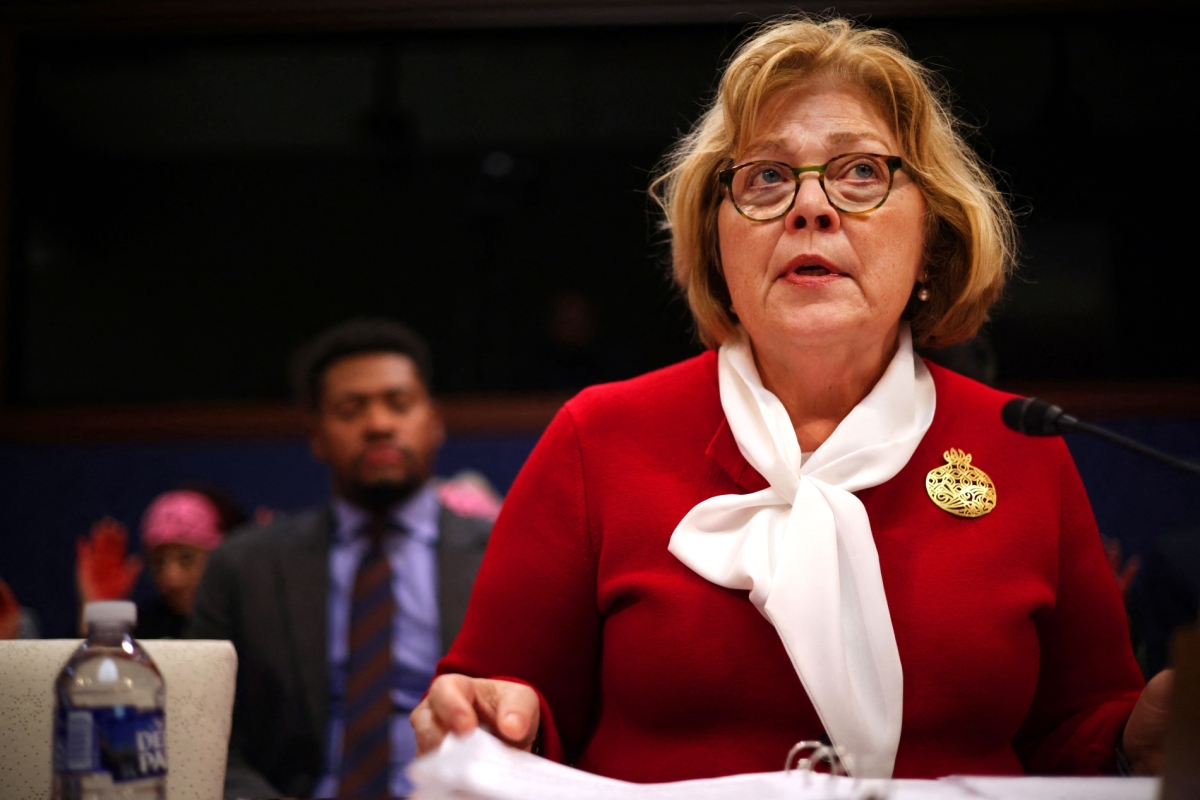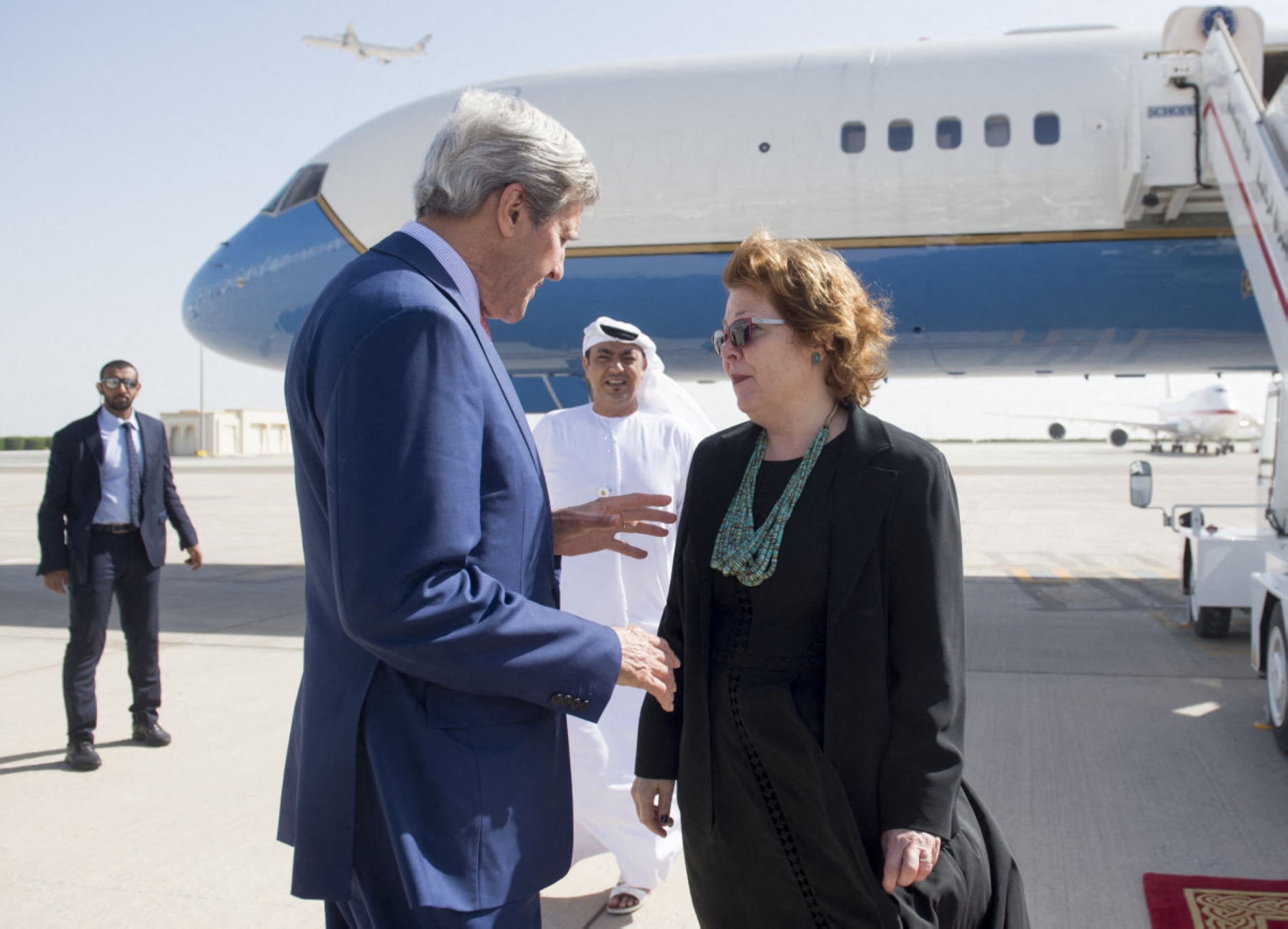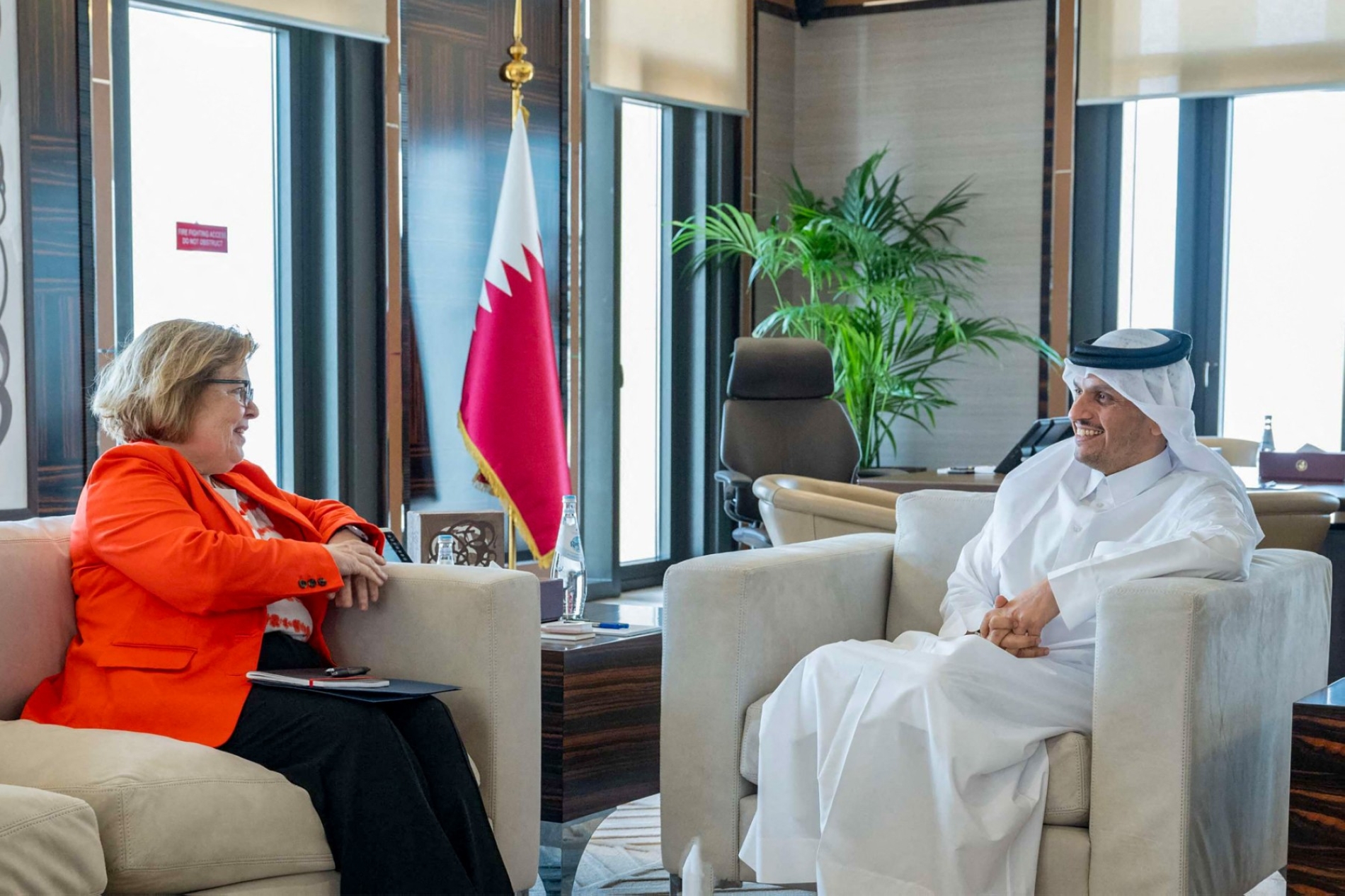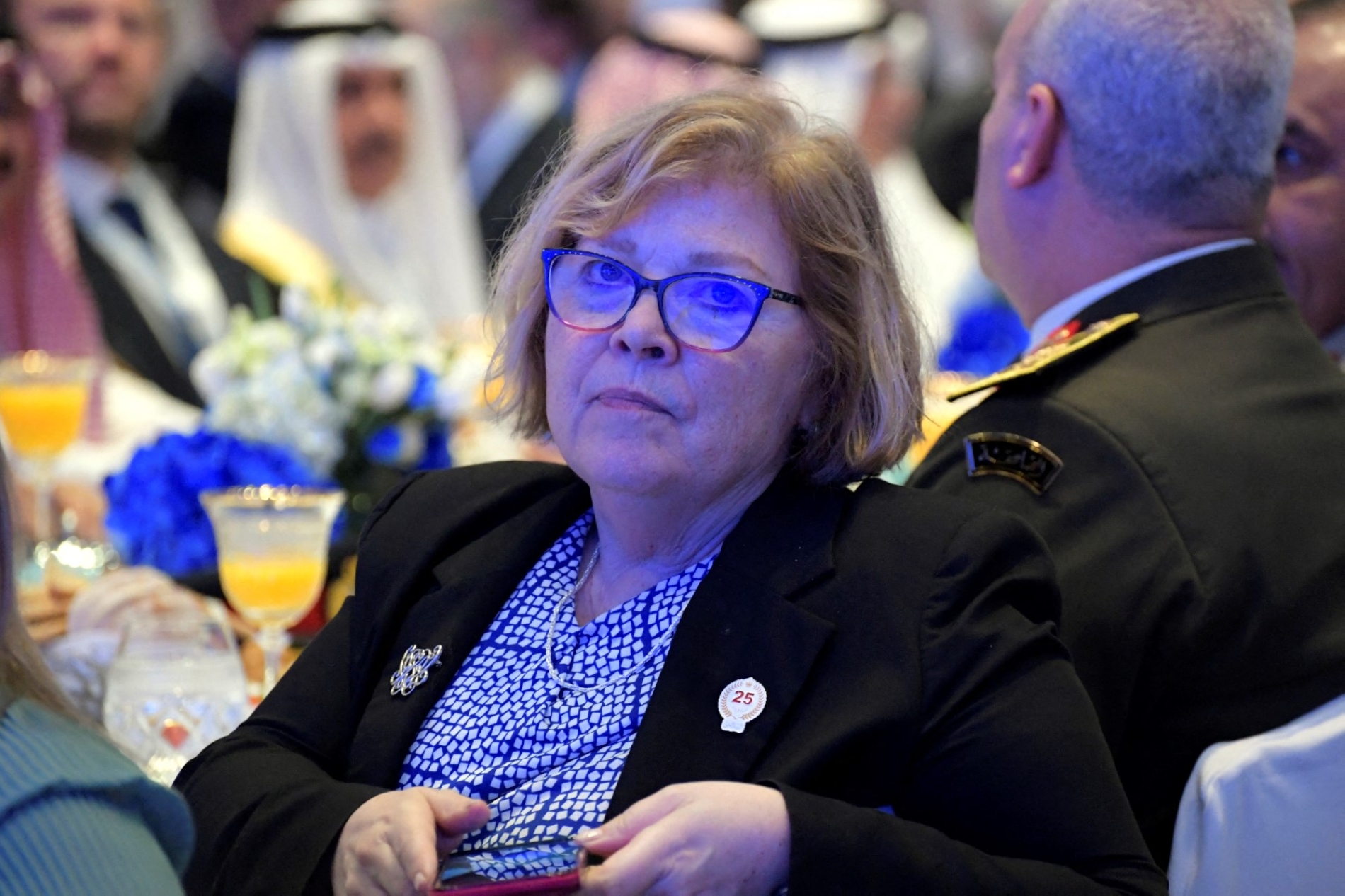The former Assistant Secretary of State for Near Eastern Affairs under the Biden administration, Barbara Leaf is one of America’s most highly respected and well-versed analysts on the Middle East and its dynamics.
A career diplomat who once served as the United States’ ambassador to the United Arab Emirates (2015-18), Leaf has been close to Washington’s Middle East policy since the late 1990s, when her earlier briefs included Libya, the Arab-Israeli conflict, and regional terrorism.
No stranger to warzones, from 2003-06 she worked in Bosnia-Herzegovina in the aftermath of the Yugoslav Wars (a series of ethnic conflicts), and from 2010-13 she helped lead US policy and reconstruction efforts in Iraq. In both post-war Bosnia and post-war Iraq, sectarian and ethnic tension led to power-sharing systems.
Given Leaf’s experience over the years, Al Majalla sought her views on US foreign policy in the Middle East, post-Assad Syria, Iran’s nuclear programme, Palestinian statehood prospects, and the nature of sectarian power-sharing systems. Interestingly, she said this was not the answer in Syria, whose interim president (Ahmed al-Sharaa) she met before Joe Biden left office.
In an intriguing interview, she offered insights in the Syrian leader’s mentality, explaining how pragmatism was so crucial to his ability to operate as both military leader and political leader. Here is the conversation in full:
__
Critics of Joe Biden says his foreign policy was passive and isolationist, leading the US to retreat from the Middle East. Do you agree?
That’s an inaccurate representation or analysis of the Biden foreign policy globally, but also towards the Middle East. I would never call Joe Biden an isolationist. Far from it. Throughout his life—whether in the Senate, as vice president, or as president—he really believed strongly in the power of strength and the value of US engagement globally. The impact of our engagement overseas is tripled or quadrupled, to the degree that we do things collectively with partners.
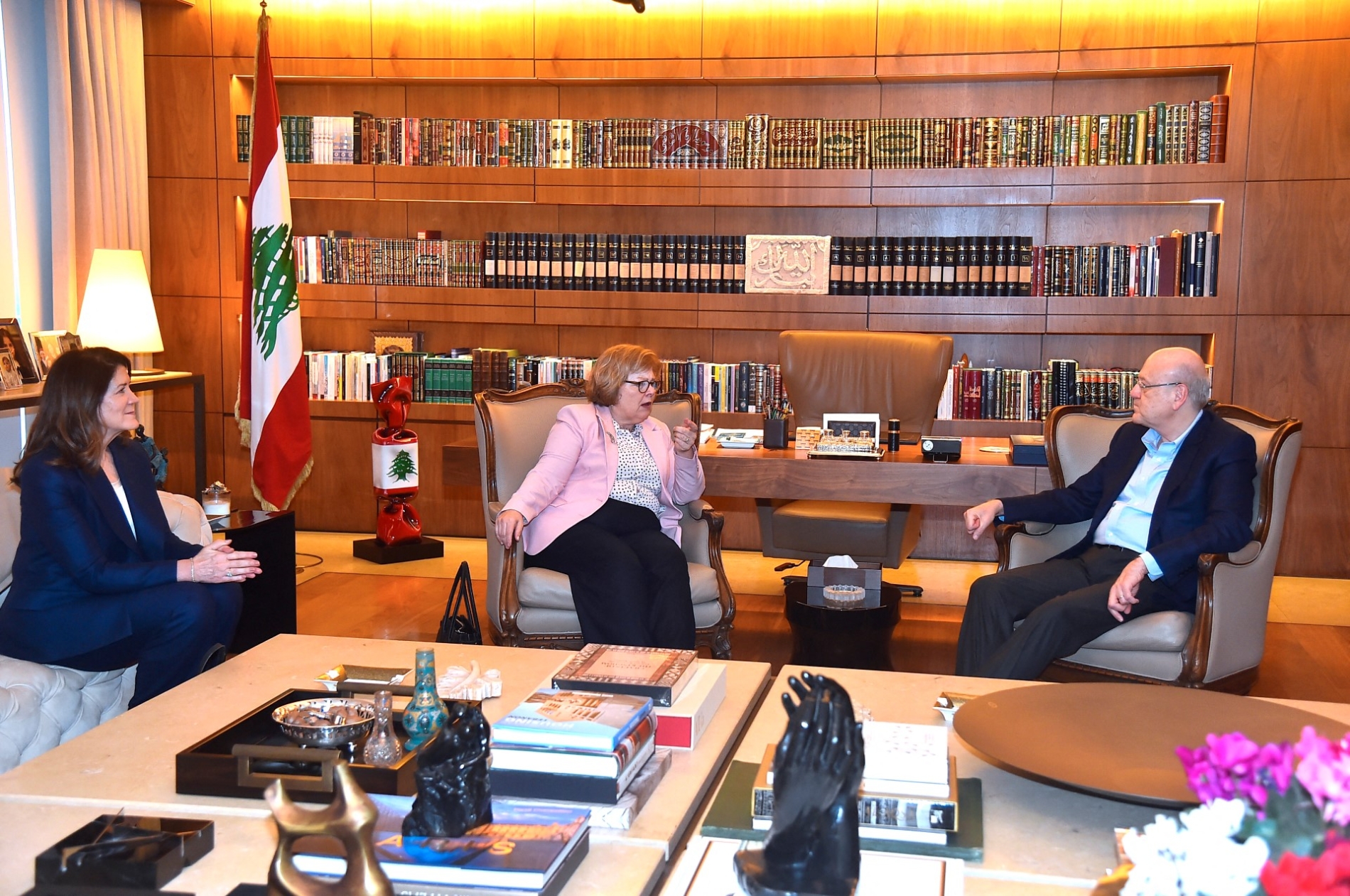
In terms of the region, I totally disagree with the notion that he retreated from it. The US military presence was robust. It did not decline from when he came into office. Indeed, he flexed our posture dynamically at several key points, whether with carrier task force groups, or troops, or planes, or Patriots (missile systems).
He dynamically pushed in and increased the US military presence as events requirements dictated, and you saw that with Iran’s attempt to attack Israel in April and October of last year. So, on a military or security level, no, he did not retreat. Likewise, on a diplomatic level, he picked up and built relationships.
Do you agree with those who say that Donald Trump is projecting strength to achieve peace?
He has used the military in significant ways twice: against Iran, and against the Houthis, who have been causing problems in the Red Sea. That is something that the Biden administration was very much involved in. Frustratingly, it’s a very difficult campaign to undertake with any degree of success. The Trump administration didn’t succeed either, as we see from these two terrible attacks on commercial tankers in recent days, killing crew members and sinking ships. It doesn’t lend itself to an easy solution, as the Trump administration has found out.


